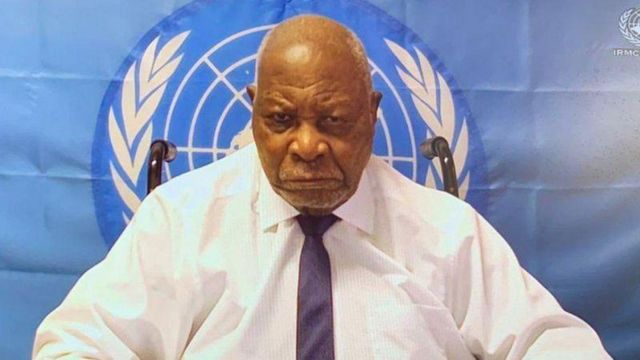The Appeals Chamber of the International Residual Mechanism for Criminal Tribunals (IRMCT), on Monday, August 7, quashed the “trial of facts” procedure that was prescribed as an alternative for Felicien Kabuga’s trial.
In June, the IRMCT trial chamber, by a majority decision ruled that Kabuga was not fit to stand trial due to his deteriorated health condition.
The judges thus adopted the “trial of facts,” a procedure that allows the presentation of evidence and findings but excludes the possibility of conviction.
Activists voiced their dismay and frustration over the June 2 ruling by the court in The Hague, Netherlands. A Moroccan judge gave a dissenting opinion in the decision by the court. Judge Mustapha El Baaj – a criminal justice expert – said that Kabuga and his defence did not give satisfactory evidence to back incapacity claims.
The decision was primarily based on medical examinations conducted by three independent experts who told the court that Kabuga is affected by significant physical illnesses and has vascular damage to his brain.
While they agreed on many factors, there was disagreement between two of them – Professors Henry Kennedy and Gillian Mezey, regarding the extent of his cognitive impairment and capacity to understand the proceedings and evidence details.
Kennedy believed that Kabuga’s cognitive decline was limited and that he did not exhibit signs of dementia. He maintained that Kabuga could meaningfully participate in the trial with appropriate assistance.
On the other hand, Mezey concluded that Kabuga suffered from moderate to severe dementia, which is progressive in nature. She deemed him unfit for trial and anticipated further cognitive decline.
After considering their findings, the UN court resolved that Kabuga was unfit for trial, but decided that the best way to uphold his rights and fulfil the goals of the mechanism was by adopting the “trial of facts.”
Both sides – defence and prosecution – appealed against the decision. The defence saw a complete end to the proceedings, while the prosecutors desired a continuation of the criminal trial.
Issuing the verdict, the IRMCT Appeals Chamber composed of judges Carmel Agius, Burton Hall, Liu Daqun, Aminatta Lois Runeni N’gum, and José Ricardo de Prada Solaesa, dismissed the prosecutors’ appeal.
“In its decision today, the Appeals Chamber unanimously dismissed the Prosecution’s appeal, finding that the Prosecution failed to show that the Trial Chamber applied an incorrect legal standard or erred in evaluating the evidence when determining that Mr. Kabuga is not fit to stand trial,” read a statement from the IRMCT, on Monday, August 7.
The judges also ruled in favour of the defence’s appeal, because “neither the statute nor the jurisprudence of the mechanism and its predecessor tribunals allows for an alternative finding procedure in lieu of a trial.”
“The Appeals Chamber observed, in this respect, that the elements of this procedure, as defined by the Trial Chamber, appear to circumvent statutory guarantees afforded to all accused before the Mechanism. Consequently, the Appeals Chamber found that, in adopting this procedure, the Trial Chamber exercised discretion that was not conferred upon it by the Mechanism’s statutory framework, which constitutes an error of law, invalidating the Trial Chamber’s decision,” part of the ruling read.
The 90-year-old, a businessman before and during the genocide, is charged with seven counts, including genocide, complicity in genocide, direct and public incitement to commit genocide, attempt to commit genocide, and conspiracy to commit genocide. Other charges are persecution and extermination, both as crimes against humanity.
Notoriously tagged “the financer of the genocide,” Kabuga allegedly provided massive support to the genocide in terms of finance, logistics and moral support.
In earlier court sessions, prosecutors pinned him on providing uniforms, weapons and vehicles to Interahamwe militia, in addition to using Radio RTLM, a media house he owned, to propagate anti-Tutsi propaganda and fuel hatred and killings against them.




